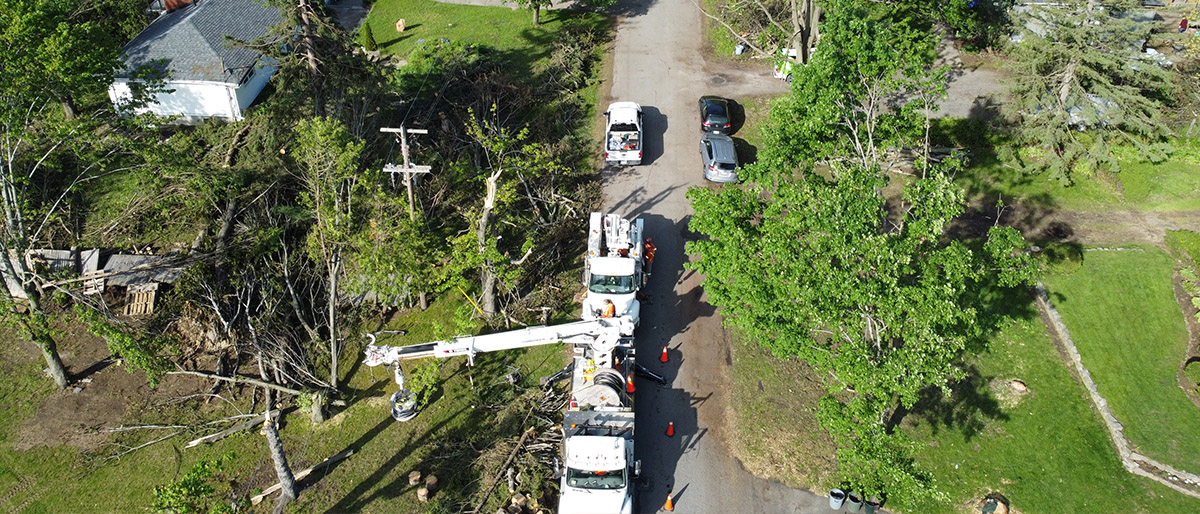A more resilient grid will help keep electricity flowing to Ottawa homes and businesses.
Despite our best efforts, disruptions happen.
While we do all we can to prevent power outages in the first place, disruptions can happen for numerous reasons — from inclement weather and natural disasters to equipment failures, foreign interference or cyberattacks beyond our control.
Whatever the cause of disruption, we want to make sure we can get the lights back on in Ottawa homes and businesses as fast as possible.

Climate change is contributing to more major storms.
Severe weather events are a frequent cause of prolonged and widespread power outages, especially in recent years. We’ll see an even greater number of these events as our climate continues to change.
- Tornados, lightning storms, ice storms and heavy snowfall are more frequent in Ottawa these days than in the past. They’re also more intense. Major storms significantly challenge our ability to maintain a reliable power supply — demanding that we invest in grid resilience to withstand the growing impacts of climate change.
- The derecho storm that hit Ottawa in 2022 is a recent example of the potential of intense weather to disrupt electricity services across our city. The damage this storm caused to the grid was more severe than the ice storm of 1998. We must take steps to ensure our grid can better stand up to the realities of climate change.
Resilience is a multipronged effort.
Grid resilience is the ability of our distribution network to withstand, adapt to and recover from disruptions. Improving resilience requires investment in innovations like smart grid technology, distributed energy resources and microgrids, as well as optimizing the design and redundancy of our systems to allow for faster outage responses and shorter outage durations. It also includes measures such as burying power lines where it makes sense and proactively removing or trimming trees that are likely to interfere with service wires.
Key capabilities for a more resilient grid
To improve grid resilience, we need to enhance our capacity to:
- Anticipate and mitigate risks: By proactively identifying vulnerabilities in our distribution network and addressing them, we can reduce the likelihood that they’ll lead to disruptions — and, if they do, the extent and impact of outages.
- Recover quickly and learn: Our goal during any disruption is to restore the flow of electricity to residents and businesses as fast as possible. Every outage is also an opportunity to learn how we can accelerate our recovery efforts and enhance grid resilience for the future.
Ottawans could go without power more often.
Without sufficient investment in grid resilience, Ottawa residents and businesses will face more frequent and longer power outages. Outages would become more widespread as well, challenging our crews to respond and prolonging our power restoration efforts.
These issues would only worsen as a changing climate makes severe weather events more common and destructive.
A vulnerable grid leaves us vulnerable.
Power outages aren’t just inconvenient. They can also endanger people, hurt business’s bottom lines and, depending on the cause, contribute to higher service charges.
- Power outages create safety risks. This is especially true for people who rely on electricity to power their medical devices or who can’t simply take the stairs instead of using an elevator. Outages are also disruptive to businesses, schools and other essential services, damaging productivity and economic activity.
- Each time a major storm damages the grid, we dedicate significant resources to repair affected infrastructure and restore service. While this puts a financial burden on us, it’s essential — because the people and businesses of Ottawa need power. Unfortunately, as these costs add up, it could lead to higher rates for our customers. It’s another reason why grid resilience is a sound investment.